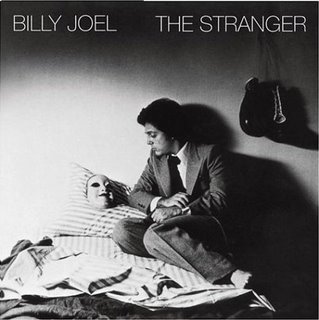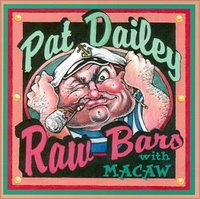 It was once said of Billy Joel that his mass appeal is due to his ability to write songs which can be so personal and individual for so many different people. Each of his songs can conceivably mean something different to every listener. Where Billy Joel has left off, others have risen to the challenge of writing songs that have that similar mass appeal. Brian Vander Ark is such a singer and his album, Resurrection shows some of the best material of one of the best singer/songwriters of his generation, picking up the torch left by the likes of Elton John, Billy Joel, and Bruce Springsteen, but with a style all his own.
It was once said of Billy Joel that his mass appeal is due to his ability to write songs which can be so personal and individual for so many different people. Each of his songs can conceivably mean something different to every listener. Where Billy Joel has left off, others have risen to the challenge of writing songs that have that similar mass appeal. Brian Vander Ark is such a singer and his album, Resurrection shows some of the best material of one of the best singer/songwriters of his generation, picking up the torch left by the likes of Elton John, Billy Joel, and Bruce Springsteen, but with a style all his own.Despite the success of their 1997 hit The Freshman few people (outside of Michigan at least) are familiar with The Verve Pipe in general and the songwriting talents of their lead singer, Brian Vander Ark in particular.
While the Verve Pipe didn't grab me at first, there's no denying that Vander Ark's songwriting has only improved with each successive album. His solo album, Resurrection, follows in the natural progression of the Verve Pipe's 2000 release, Underneath. The two albums make excellent companions to one another.
The opening track, 1229 Sheffield has some of Vander Ark's more clever turns of phrase:
Returning our bottles for ten cent deposits
I'll drink us two dollars more...
The pet names you once gave me, we soon gave to the pets
I still come when you call them, just to be sure
There's a naked honesty to Vander Ark's songwriting that some may describe as "angsty" but to pigeonhole it would do it a great disservice. Another highlight to the album, And Then You Went Away probably best captures Vander Ark's "heart-on-the-sleeve" angst:
You hung your favorite picture so you could see it everyday
Then you went away, then you want away
It's by the window garden you said you'd water everyday
Then you went away, then you went away...
Slipped on the velvet curtains you had custom made
Then you went away, then you went away
And there's my new best friend, the one you took in as a stray
Then you went away, then you went away
Much like many of his Verve Pipe songs, there's a common theme of the evolution of relationships-- people growing together, growing apart, and the circumstances we face in relationships and the effect those events have on the relationship-- sometimes making it stronger, other times tearing it apart. This theme, tackled initially on the opening track, 1229 Sheffield is revisited on Mileage:
Pass by the high school
A memory rerun
When I was seventeen couldn't wait for twenty-one
I pass by the church
Where I married you
When you were twenty-one and I was twenty-two...
So I speed past the building
I always wanted to
Since I was twenty-one, almost twenty two
If I'd had the nerve
I'd have quit there before
You turned twenty-three and couldn't take me there any more...
The album as a whole is Vander Ark at his very best. His voice is soothing and consistently interesting. The songs never falter, there's not a "weak" or "skippable" song on the CD-- if anything most songs fall victim to the repeat button and with each new listen provide the listener with the gift of a new perspective. This is an album that only improves with each listen. So listen and enjoy!













